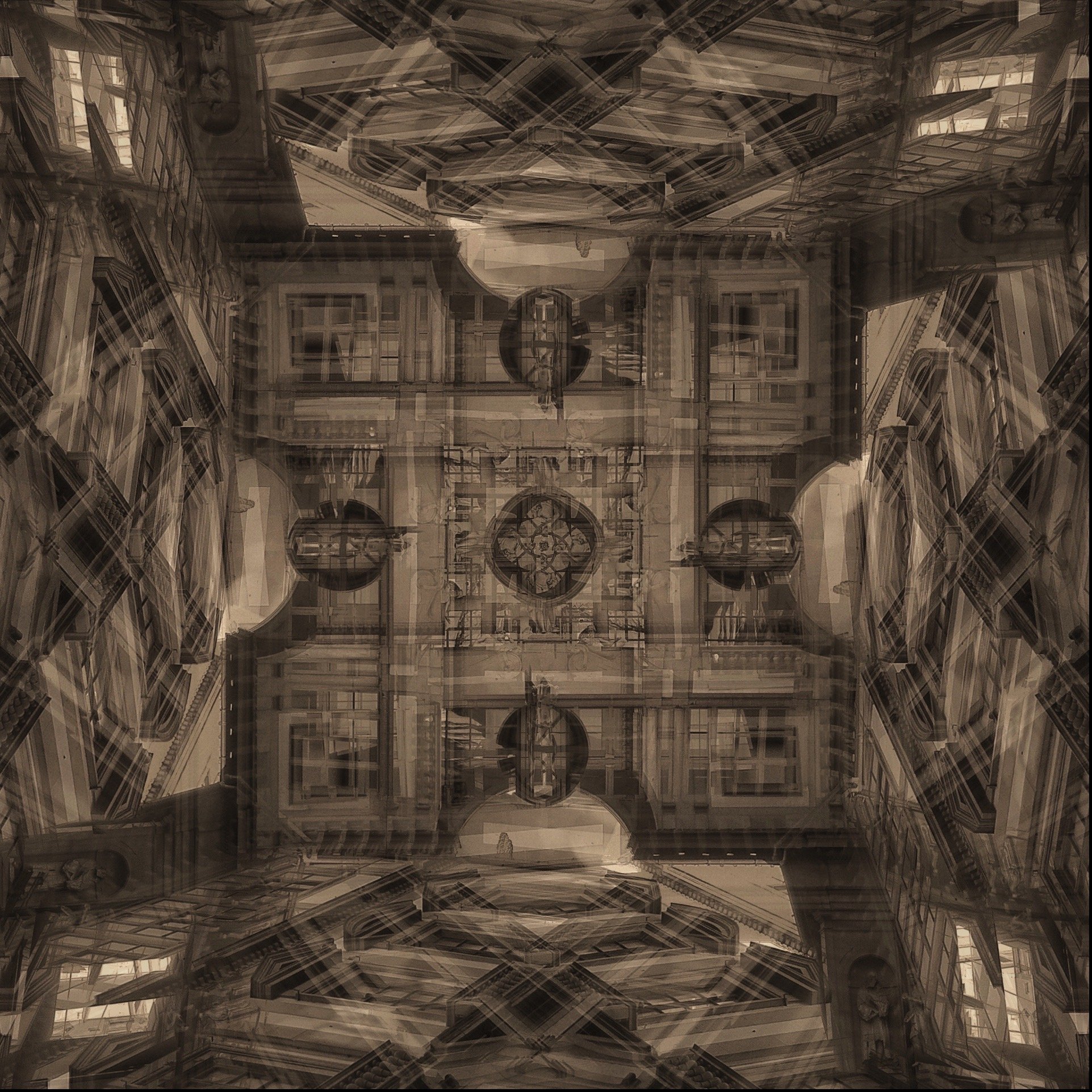Memory Palace by David Orr
I once was encouraged to build a place
that would hold every idea
I needed to retrieve
Something elephantine
that would stand
for ages
So I chose what and where
with discrimination
hiding my treasures
from imagined thieves
with such cunning and care
that I can no longer
find them myself
It was supposed
to be grand, this place
but really it’s a wreck
with doors painted shut
stairs that end in open space
all of it sinking, slowly
like Venice
Before we built these things
we used to sing to remember
weaving clues into melodies
Some sang
the very landscape into existence
Some sang
to string a thread from past to present
Some sang
for the sheer joy of making sound
Now it’s quiet inside
my memento mausoleum
only my own shuffling
echoes through these halls
First we sang our ideas
then we wrote them down
now we look them up
learning the hard way
that a fixed idea
can’t carry
a tune
Artist’s Statement
In my visual work I recombine images by employing the kinds of repetition, symmetry and patterns we find in nature, sacred geometry, and science. The finished pieces often take the form of a mandala (Sanskrit, ‘circle,’) an ancient device most often employed as a graphic model or map of the universe. The mandala seems itself to be universal: Carl Jung noted that mandala form surfaced in every belief system he studied, and indeed the circle has consistently been the geometry most chosen when representing complex scientific, sacred, and practical information. I’m drawn to areas where ideas in philosophy, science, and art overlap, and think often of the Daoist saying “the deepest truths can never be captured by words alone” — ultimate truth most likely lies beyond reason.
Poetry has always struck me as a portal. Even as it employs language, poetry often takes us past that structure, past logic, towards truths we might not brush against otherwise. Language that might be considered nonsensical in prose becomes transporting as poetry. The collisions and intertwining of words and their threads can serve as a kind of zen koan, snapping us out of a linear framework and into a more universal mode of thought, if only for an instant.
My poem “The Memory Palace” is meant to comment on the inevitability of memory shifting over time. Neuroscience tells us that each time we remember something, we’re re-writing it, changing it slightly. Additionally, the methods by which we remember have changed. In early oral traditions information was continually updated in each successive recitation, a practice that was lost once we ‘froze’ ideas in type. With the advent of digital technology, ideas are once again becoming more fluid, even as the amount of information (and misinformation) is overwhelming. I often suspect that in this information age we have access to more, yet seem to actually know, and remember, less.
David J Orr is an artist who loves language and coffee. His writing has appeared in Hazlitt, The New PRS Journal, The Order of the Good Death, and the Slow Lightning Anthology.


